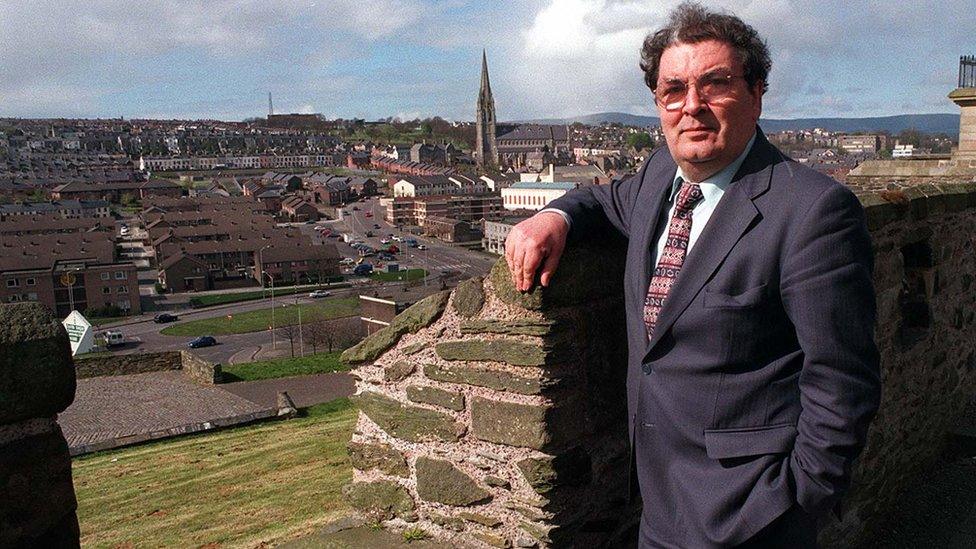John Hume will be 'remembered for centuries to come'
- Published
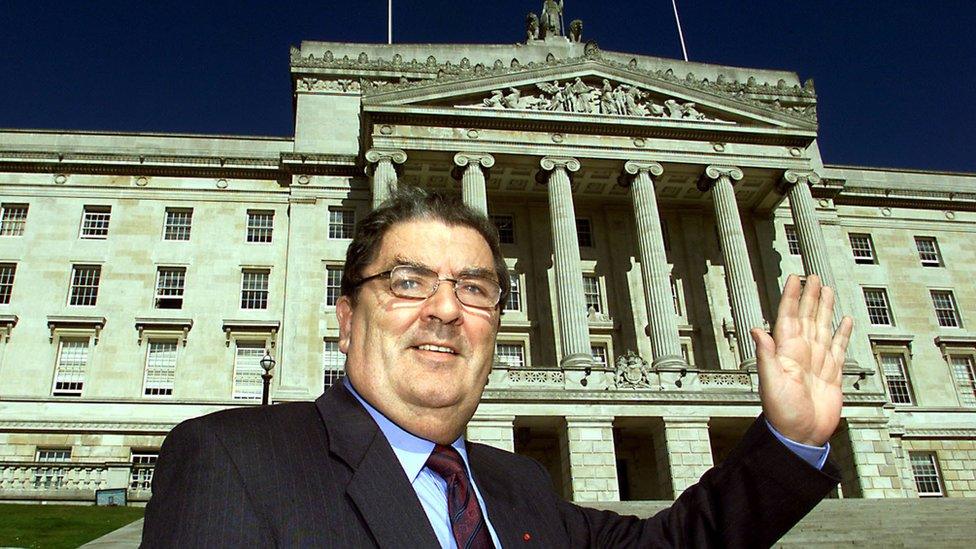
John Hume pictured at Stormont just before his last conference speech as SDLP leader
John Hume will be remembered around the world "for centuries to come" for his contribution to peace, the chair of the Good Friday Agreement talks has said.
Former US Senator George Mitchell made the remarks as he paid a warm tribute to Mr Hume, who died on Monday aged 83.
He described the Northern Ireland politician as "one of the great persons in all of Irish history".
Mr Hume developed a special connection with diplomats in the US spanning several decades as he worked for peace.
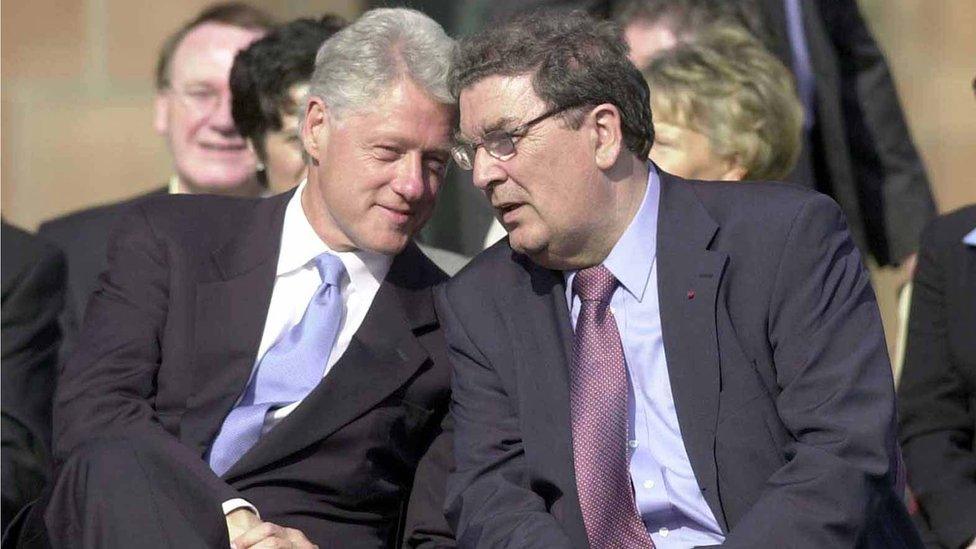
Bill Clinton with John Hume during the former US president's visit to Londonderry in 2001
As one of Northern Ireland's best known and longest-serving politicians, he is widely crediting for starting the talks that led to the 1998 Good Friday Agreement, external, which helped usher an end to more than 30 years of violence known as the Troubles.
He co-founded the Social, Labour and Democratic Party (SDLP) in 1970 and led the party between 1979 and 2001.
He began building relations with Irish-American politicians in the 1970s, such as Senator Ted Kennedy and Tip O'Neill, then-speaker of the US House of Representatives.
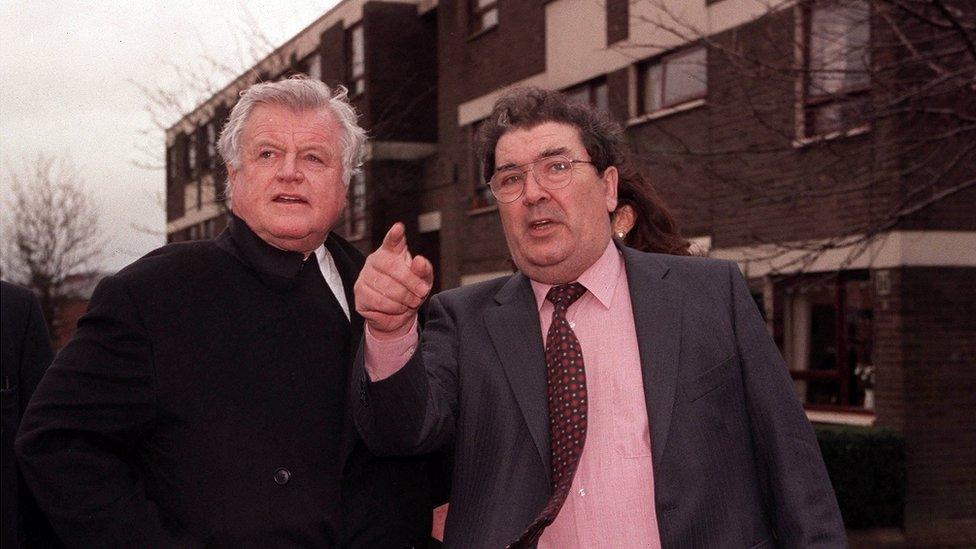
John Hume with US Senator Edward Kennedy during a visit to Derry's Bogside in 1998
Those early meetings paved the way for much closer involvement from the United States as the peace process moved at speed in the 1990s, when Mr Mitchell chaired several rounds of crucial talks.
Mr Mitchell told the BBC's Good Morning Ulster programme that John Hume was a "dear personal friend".
"He was not just someone who I'd worked with closely over a period of many years - but he was I think, as most people acknowledge - one of the great persons in all of Irish history."
The former senator said his late friend had "devoted his life to the cause of peace in Northern Ireland".
"I felt that he was the architect of the process that culminated in the agreement of 1998, known as the Belfast Agreement or the Good Friday Agreement."
The US envoy spent more than two years in Belfast, chairing the delicate negotiations between unionists and nationalists which ended in the signing of the accord on Friday 10 April that year.
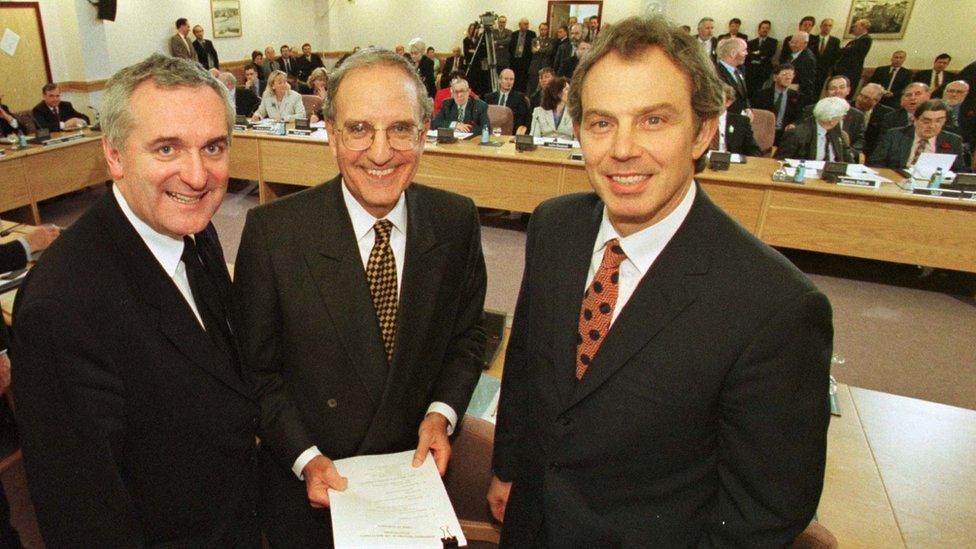
George Mitchell with the Irish and British PMs as the GFA was signed in 1998
Mr Mitchell said Mr Hume would be remembered for his ability to withstand tremendous amounts of criticism and "yet stand fast and firm" in the cause of peace.
He added that his friend won admiration "on all sides" due to his unwavering opposition to violence.
"Many of the unionists disagreed with him of course; many nationalists disagreed with him," Mr Mitchell said.
"But not one of them ever to my knowledge doubted his sincerity; his commitment to the objective; his often repeated statement that Northern Ireland had to be for both unionists and nationalists and it had to be done in a way that was peaceful."
"I think people in Ireland will remember John - people north and south, and people around the world who value peace - will remember John Hume for centuries to come," added Mr Mitchell.
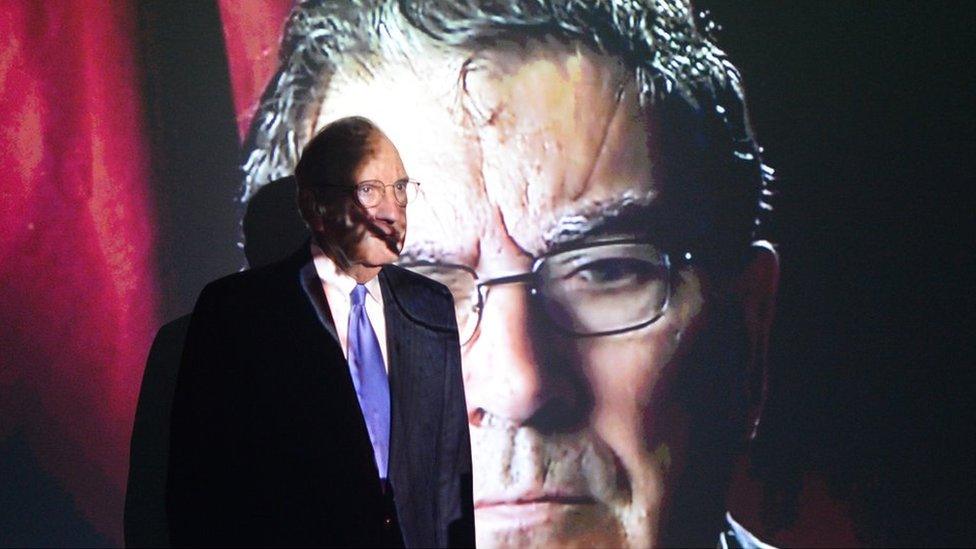
Former US Senator George Mitchell standing in front of an image of John Hume
'We came to rely on John'
Other US diplomats who were involved in the Northern Ireland peace process have also paid tributes to Mr Hume, including Nancy Soderberg and Bruce Morrison.
Ms Soderberg, a former member of the US National Security Council, was one of President Bill Clinton's key advisers on Northern Ireland during the 1990s.
"We came to rely on John Hume as the best bellwether of possible progress in the peace process," she told Good Morning Ulster.
Ms Soderberg recalled that Mr Hume's advice was essential in President Clinton's decision to change his mind and grant Sinn Féin leader Gerry Adams a visa to travel to the US in 1994.
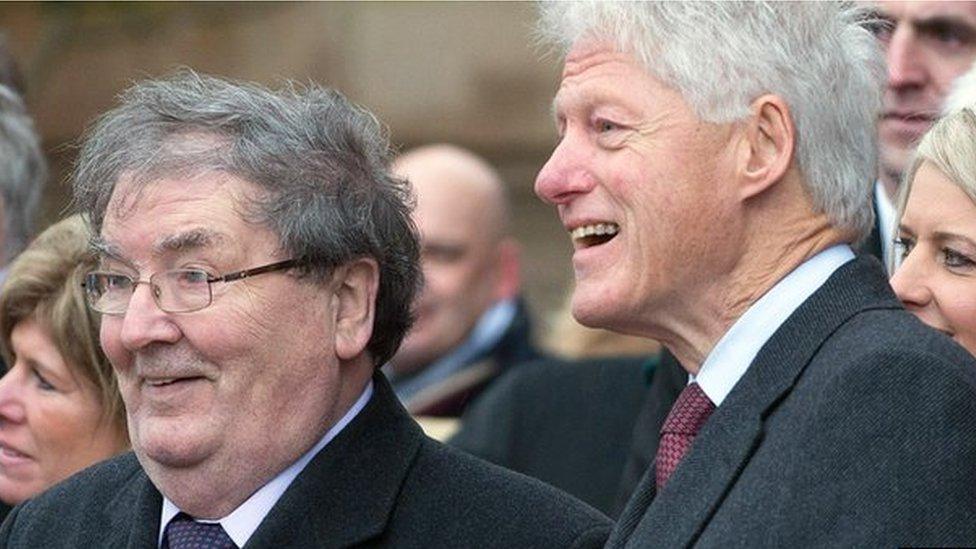
John Hume visited the Clinton administration at the White House three times, and President Clinton also visited Derry on several occasions
The visa was controversial as the IRA was still involved in violence, but the decision came just months before the paramilitary organisation called a ceasefire.
Ms Soderberg said: "It was his [Mr Hume's] sensing of the moment being right that turned the position of the president of the United States to say 'yes, it's time to move forward' and it would not have happened without John Hume."
Former US Congressman Bruce Morrison played a key role in the lead up to the IRA ceasefire in August 1994.
He described Mr Hume as "an indomitable spirit" and somebody who could persuade others to his point of view.
"He persuaded with logic and he persuaded with passion," he told BBC News NI.
Influence 'extended far beyond home shores'
"He communicated to you that he was worried about the people he represented, and the people in Northern Ireland, more generally."
In a statement, the current US Secretary of State, Mike Pompeo, also reflected the strength of the connection Mr Hume shared with politicians in the US.
"Mr Hume's influence extended far beyond the shores where he lived," he said.
"During the darkest days of Northern Ireland's recent past, he won the friendship and respect of countless Americans.
"His early and sustained influence in bringing US political and economic support to Northern Ireland cannot be overstated, and this profound partnership and friendship continues today."
Many Americans who care deeply about Northern Ireland would mourn the passing of the late SDLP leader and the contribution he made to strengthening transatlantic relations, added Mr Pompeo.
- Published4 August 2020
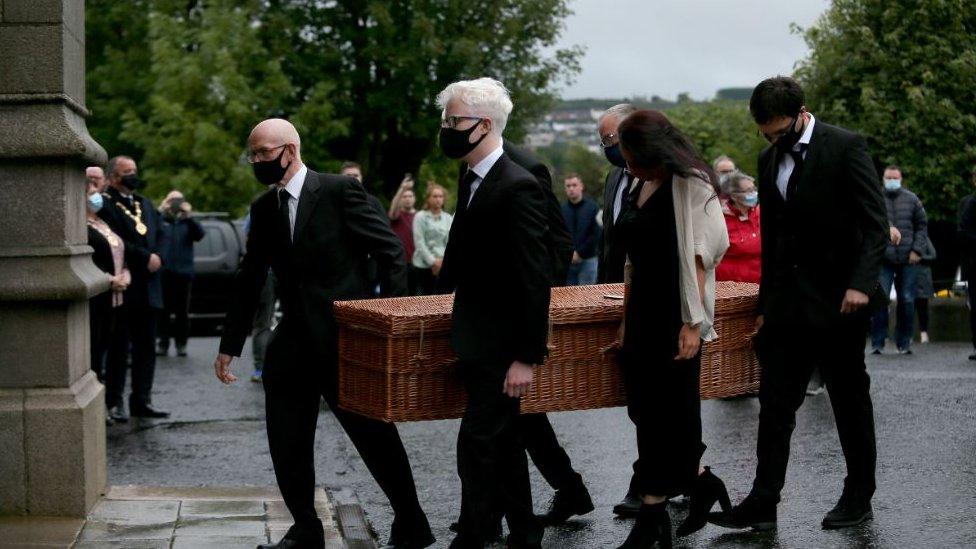
- Published3 August 2020
